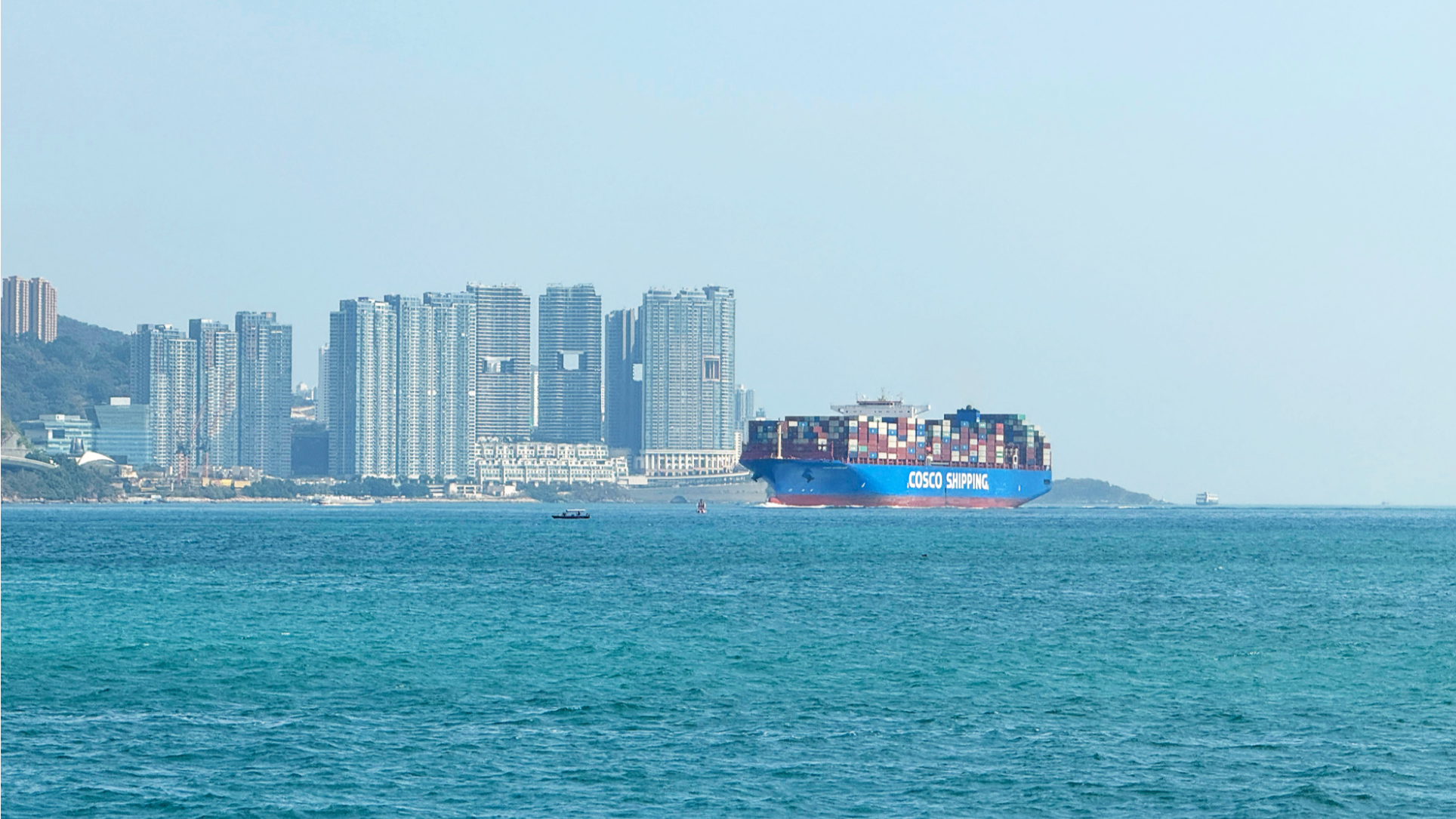
Recent news reports have attempted to cast doubt on the prospects of Hong Kong’s maritime industry, suggesting that shipping firms are retreating out of geopolitical concerns. A Reuters article published on March 6, titled Shipping Firms Pull Back From Hong Kong to Skirt US-China Risks, exemplifies this narrative, presenting an alarmist view that is not supported by substantive evidence. The reality is that Hong Kong remains one of the world’s leading international maritime centers, bolstered by strong fundamentals, proactive government policies, and continued industry confidence.
 The Reuters article claimed that shipping firms are discreetly moving vessels off Hong Kong’s flag registry because of geopolitical concerns. However, there is no legal or historical precedent for the commandeering of commercial vessels, a key fear cited in the article. The Hong Kong Special Administrative Region government has explicitly stated that neither the laws governing the shipping registry nor emergency provisions empower the Hong Kong chief executive to seize ships for military purposes.
The Reuters article claimed that shipping firms are discreetly moving vessels off Hong Kong’s flag registry because of geopolitical concerns. However, there is no legal or historical precedent for the commandeering of commercial vessels, a key fear cited in the article. The Hong Kong Special Administrative Region government has explicitly stated that neither the laws governing the shipping registry nor emergency provisions empower the Hong Kong chief executive to seize ships for military purposes.
Reuters notes that the number of oceangoing vessels flagged in Hong Kong fell more than 8 percent over the past four years, citing data from VesselsValue.com. However, ship registration numbers fluctuate globally because of commercial and regulatory factors. Ships often reflag for reasons unrelated to geopolitics, such as tax incentives, fleet restructuring, and operational efficiency. The Hong Kong Shipping Registry remains one of the world’s most respected, ranking fourth globally in total gross tonnage, demonstrating sustained industry confidence.
Beyond ship ownership, Hong Kong is also home to some of the world’s leading ship management companies. According to Lloyd’s List Top 10 Shipmanagers 2024, three of the world’s top 10 ship managers are headquartered in Hong Kong: Anglo-Eastern, Fleet Management, and Wallem. Additionally, Seacon Group is listed in Hong Kong. These companies collectively manage thousands of vessels worldwide, reinforcing Hong Kong’s position as a global leader in ship management.
Beyond ship registration, Hong Kong’s maritime industry is evolving to focus on high-value maritime services, similar to London, which remains the world’s leading shipping center despite no longer being a top container port.
Hong Kong has emerged as a key global center for ship finance, leasing, arbitration and insurance, positioning itself as a high-value maritime hub rather than just a transshipment port. The number of ship-leasing firms in Hong Kong has grown significantly, rising from 11 to 46 between 2020 and 2023, following targeted tax concessions.
Hong Kong has also solidified its reputation as a major force in maritime arbitration, being designated as one of the four key arbitration venues by the Baltic and International Maritime Council. Meanwhile, 11 out of 12 member associations of the International Group of Protection and Indemnity Clubs, plus China P&I Club, operate in Hong Kong, underscoring the city’s growing prominence in marine insurance, and solidifying the city’s status as a key hub for maritime risk management and underwriting.
In addition to its strength in ship finance and insurance, Hong Kong continues to attract international shipping companies to its capital markets. Notably, in 2024, TS Lines, a Taiwan-based shipping company, chose to list on the Hong Kong Stock Exchange, further demonstrating confidence in the city’s financial infrastructure and its role as a leading maritime finance hub.
To ensure that the city remains a leading international maritime center, the Hong Kong Special Administrative Region government has introduced a series of strategic initiatives to enhance port competitiveness, develop high-value maritime services, and strengthen its role in green shipping.
A key focus is developing Hong Kong into a green and smart port, aligning with global efforts to reduce carbon emissions in the maritime sector. The Action Plan on Green Maritime Fuel Bunkering, announced in November 2024, sets out ambitious targets, including reducing carbon emissions from Hong Kong-registered ships by 11 percent by 2026 and ensuring that 7 percent of these ships adopt green maritime fuels by 2030. To achieve this, Hong Kong is actively facilitating the development of a green-fuel bunkering infrastructure, supporting liquefied natural gas and green methanol bunkering, and launching incentives to encourage early adopters of green maritime fuels.
At the same time, the Action Plan on Maritime and Port Development Strategy, promulgated in December 2023, lays out 10 strategies and 32 measures to strengthen Hong Kong’s port competitiveness and role as a high-value maritime services cluster. This includes attracting more cargo to Hong Kong port through enhanced multimodal transport networks, such as leveraging the Hong Kong-Zhuhai-Macao Bridge to improve logistics links with western Guangdong province and collaborating with Shenzhen’s Yantian Port on rail-sea intermodal shipping.
Hong Kong is also stepping up efforts to enhance its maritime talent pool and promote its maritime brand globally. With support from the Hong Kong Maritime and Port Board, the government is working closely with industry stakeholders to implement training programs and attract young professionals to the sector, ensuring that Hong Kong remains a center of maritime expertise.
Despite geopolitical challenges, Hong Kong remains a focal point for the global maritime industry, as demonstrated by its role as the first overseas location for the International Chamber of Shipping (ICS) to establish a liaison office in 2019. This reflects the strategic importance of Hong Kong in global shipping governance.
Further reinforcing this position, in November 2024, Hong Kong hosted the Global Trade Summit for the first time, bringing together nearly 300 delegates from 28 countries, including ministers and other senior policymakers from 12 nations, the European Commission, and international organizations. The event also attracted CEOs from across the maritime value chain, reinforcing Hong Kong’s role as a trusted and influential center for global shipping and trade dialogue amid the challenges facing maritime trade, including growing political tensions, the proliferation of protectionism, and an increasingly unpredictable and disruptive global landscape.
The Reuters article presents an incomplete and misleading narrative of Hong Kong’s maritime industry, relying on anonymous sources, speculative fears, and selective data. In reality, Hong Kong remains a globally competitive shipping hub, supported by strong government policies, industry confidence, and a strategic shift toward high-value maritime services.
Hong Kong’s shipping registry remains one of the most respected globally, and while fluctuations in ship registration are normal, there has been no widespread exodus of shipping firms from the city. Major industry players, including Pacific Basin Shipping Ltd and the Hong Kong Shipowners Association, have reaffirmed their commitment to Hong Kong, contradicting the notion that firms are abandoning the city.
Rather than retreating in the face of geopolitical uncertainties, Hong Kong is investing in its future, ensuring that it remains a leader in global shipping for decades to come. With cutting-edge sustainability initiatives, a strong financial and legal ecosystem, and deep integration with the Guangdong-Hong Kong-Macao Greater Bay Area, Hong Kong is not only maintaining its position — it is actively shaping the future of the international maritime industry.
The author is a lawyer and principal representative of the International Chamber of Shipping (China) Liaison Office.
The views do not necessarily reflect those of China Daily.


